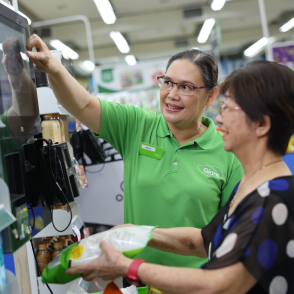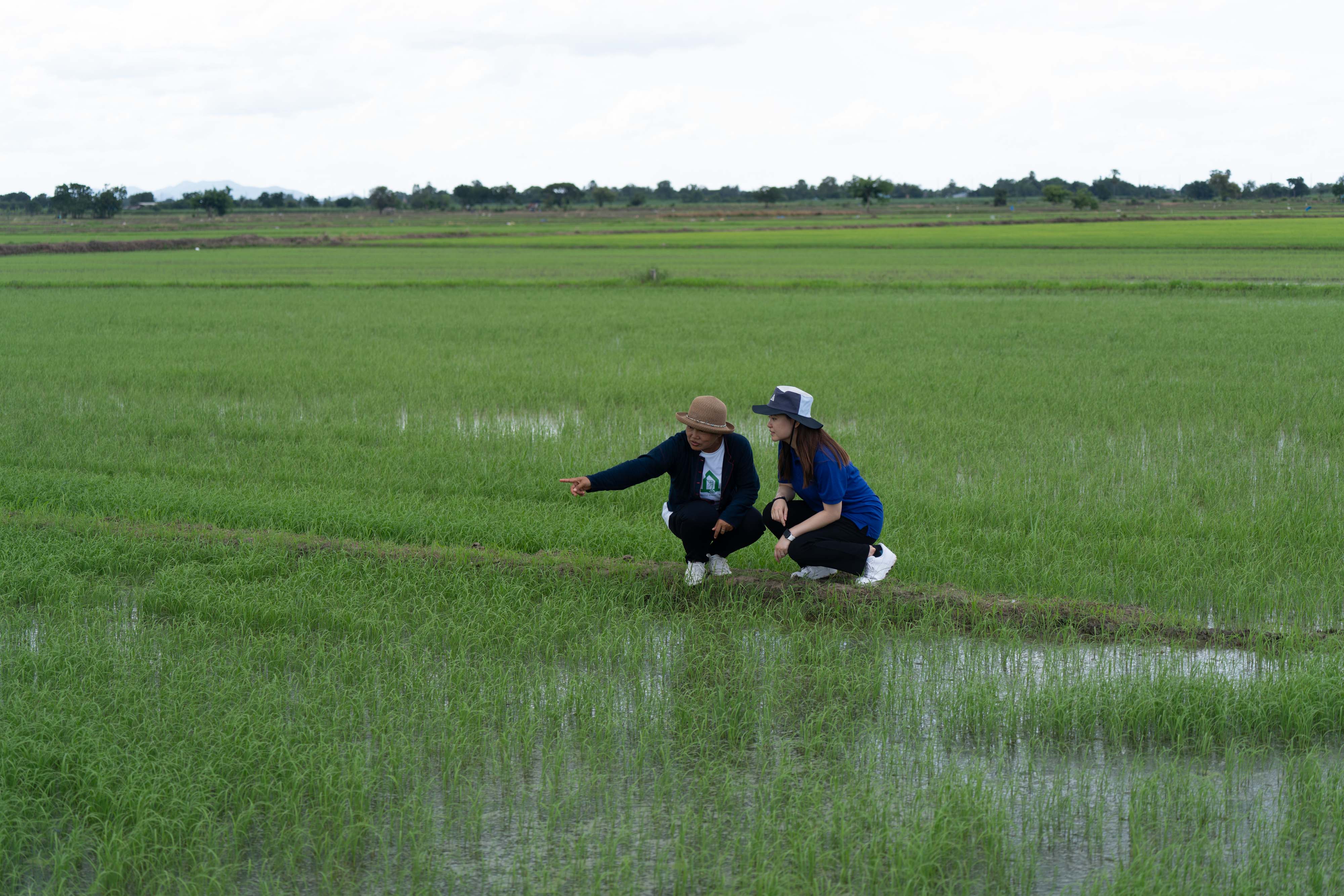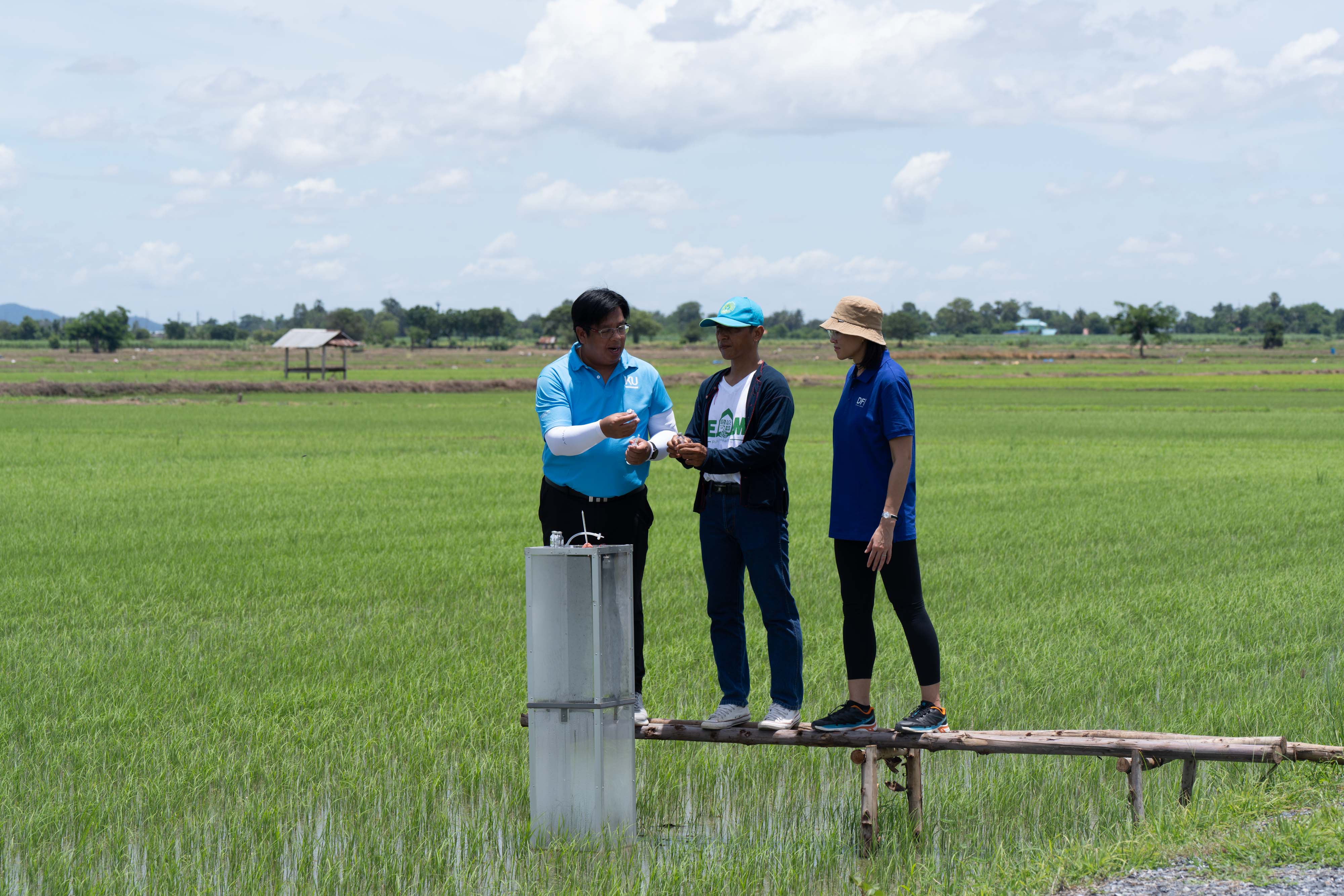With 85% of the world’s production grown in Asia, rice is a fundamental part of people’s daily lives in our region.
Thailand ranks as the 6th largest rice producer globally, and the country’s jasmine rice exports are popular
throughout Asia. Rice is also one of DFI’s top Scope 3 categories, accounting for around 6% of our Scope 3 emissions (based on 2023 data), and represents an industry in need of greater collective efforts towards emissions reduction.
To address this, DFI led a successful sustainable rice cultivation pilot programme in Thailand in 2024.
During the year, we assisted local farmers in implementing sustainable farming techniques, which included:
Alternate wetting and drying (AWD)
With the support of industry partners and the Thailand government, we trained 30 farmers in AWD techniques.
By periodically allowing rice paddies to dry, rather than keeping them continuously flooded, AWD reduces
methane-producing anaerobic conditions. This practice can lower methane emissions by up to 50% while conserving water and rice production yields.
Straw burning prohibition
Farmers were supported in eliminating open-field burning of rice straw, reducing carbon dioxide emissions and air pollution.
Soil & fertiliser management
Soil quality and fertiliser application were monitored closely, with guidance from agricultural academic experts.Soil samples were analysed to optimise nutrient use and reduce nitrous oxide emissions.
With the support from third-party agricultural experts and emissions data, the programme in 2024 produced 110,000 kg of certified low-carbon rice with a minimum 30% reduction in GHG emissions compared to conventional cultivation.
Building on this success, DFI established its Low-Carbon Rice Standards in November 2024 to support broader industry adoption of practical and sustainable farming methods.
In 2025, we would continue with the programme and target to launch 200,000 kg low-carbon rice under our Yu Pin King brand in the Hong Kong market to raise public awareness. We will also explore further partnerships and other low-carbon sourcing opportunities to expand our impact and promote sustainable agriculture across our supply chains.











